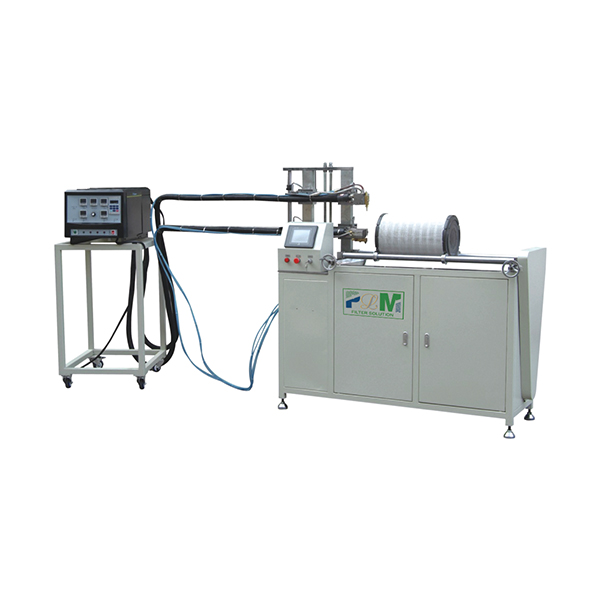Gru . 14, 2024 20:31 Back to list
High-Performance Air Filter Elements for Improved Air Quality and Engine Efficiency
Understanding Air Filter Elements Importance, Types, and Maintenance
Air filter elements are crucial components in various applications, from residential HVAC systems to industrial machinery and automotive engines. Their primary purpose is to capture and eliminate particulate matter, pollutants, and impurities from the air, ensuring not only the efficiency of the systems they serve but also the health and safety of occupants and operators. This article delves into the importance of air filter elements, explores the different types available in the market, and provides insights into their maintenance.
The Importance of Air Filter Elements
Air quality is a significant concern in today’s world, given the rise in pollution and airborne diseases. In both indoor and outdoor environments, the presence of dust, allergens, and harmful particles can lead to respiratory problems and other health hazards. Air filter elements play a vital role in enhancing air quality by trapping these contaminants before they can circulate in the air we breathe.
In industrial settings, air filter elements contribute to the longevity and efficiency of equipment. Machines that rely on clean air for operation can suffer from increased wear and tear, decreased performance, and ultimately, costly breakdowns if not equipped with effective filtering systems. Hence, using high-quality air filter elements in machinery can lead to improved operational efficiency and reduced maintenance costs.
Types of Air Filter Elements
There are various types of air filter elements, each designed to suit specific applications and filtration needs. Here are some of the most common types
1. HEPA Filters (High-Efficiency Particulate Air Filters) These filters are known for their ability to capture 99.97% of particles as small as 0.3 microns. HEPA filters are widely used in settings like hospitals and cleanrooms, where maintaining a pristine air environment is critical.
2. Carbon Filters Activated carbon filters are particularly effective at removing odors, gases, and volatile organic compounds (VOCs) from the air. They are often used in combination with HEPA filters in air purifiers to enhance air quality.
3. Electrostatic Filters These filters utilize electrostatic charge to attract and trap particles. They can be reusable and washable, making them a cost-effective solution over time.
4. Panel Filters Commonly used in HVAC systems, panel filters vary in thickness and filtration efficiency. They are accessible and easy to install, making them popular in residential applications.
air filter element product

5. Bag Filters Used primarily in industrial applications, bag filters have a larger surface area, allowing them to trap higher volumes of dust and particulates. They are often employed in commercial ventilation systems and dust collectors.
6. Pre-Filters These are designed to capture larger particles before they reach the main filter, prolonging the life of the primary filtration system. Pre-filters are essential in systems with high dust loads.
Maintenance of Air Filter Elements
Regular maintenance of air filter elements is crucial to ensure they function effectively. Neglecting filters can lead to reduced airflow, decreased efficiency, and increased energy consumption. Here are some maintenance tips
1. Regular Inspection Check filters monthly to assess their condition. Look for visible dirt and signs of clogging.
2. Replacement Schedule Follow the manufacturer’s guidelines regarding replacement frequency. Generally, disposable filters should be replaced every 1-3 months, while washable filters may only need cleaning every 6 months or as needed.
3. Cleaning Washable Filters If you're using a washable filter, clean it with water and a mild detergent, ensuring it's completely dry before reinstalling.
4. Monitor Air Quality Keep an eye on indoor air quality and replace filters more frequently if you notice increased dust or pollutants.
5. Seek Professional Help In complex systems, consider hiring professionals for thorough inspections and maintenance.
Conclusion
Air filter elements are indispensable for maintaining clean air in various environments. Understanding their types, benefits, and maintenance will help individuals and businesses select the right filters for their needs, enhancing air quality and ensuring the longevity of equipment. By prioritizing air filtration, we take a significant step toward a healthier life and a more efficient operation.
-
High-Efficiency Paper Pleating Machine for Filters Trusted Filter Paper Pleating Machine Company
NewsJul.07,2025
-
High-Performance Oil Filter for Cadillac ATS – Reliable Engine Protection Solutions
NewsJul.07,2025
-
High Quality PU Glue for Filters – Reliable Filter Glue Supplier & Exporter Get PU Glue Quotes Now
NewsJul.07,2025
-
China PLJL-4 Seal Leakage Tester for Spin-On Filter - High-Precision Multi-Station Testing Solutions
NewsJul.06,2025
-
CE Certification Auto/Truck Filter Paper Supplier – Premium Filtration Solutions for Vehicles
NewsJul.06,2025
-
OEM PLGY-500 HDAF Mesh-Ends Hooking and Pressing Machine - High Efficiency, Precision, Reliable Performance
NewsJul.06,2025
